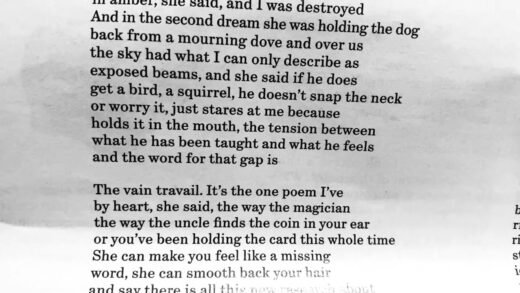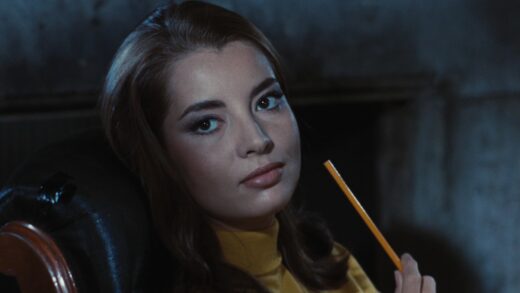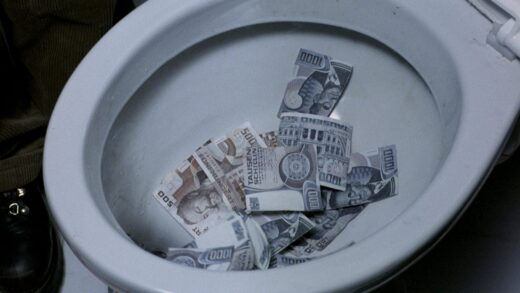Incendies (2010). Directed by Denis Villeneuve. Stars Lubna Azabal, Mélissa Désormeaux-Poulin, Maxim Gaudette, and Rémy Girard. The children of a recently deceased immigrant to Canada are posthumously asked to deliver letters to the brother and father that neither knew were alive. The children seek the brother and father and slowly piece together the traumatic story of their mother’s life.
How does Incendies begin?
When does this story begin, asks the silent protagonist at the end of the film.
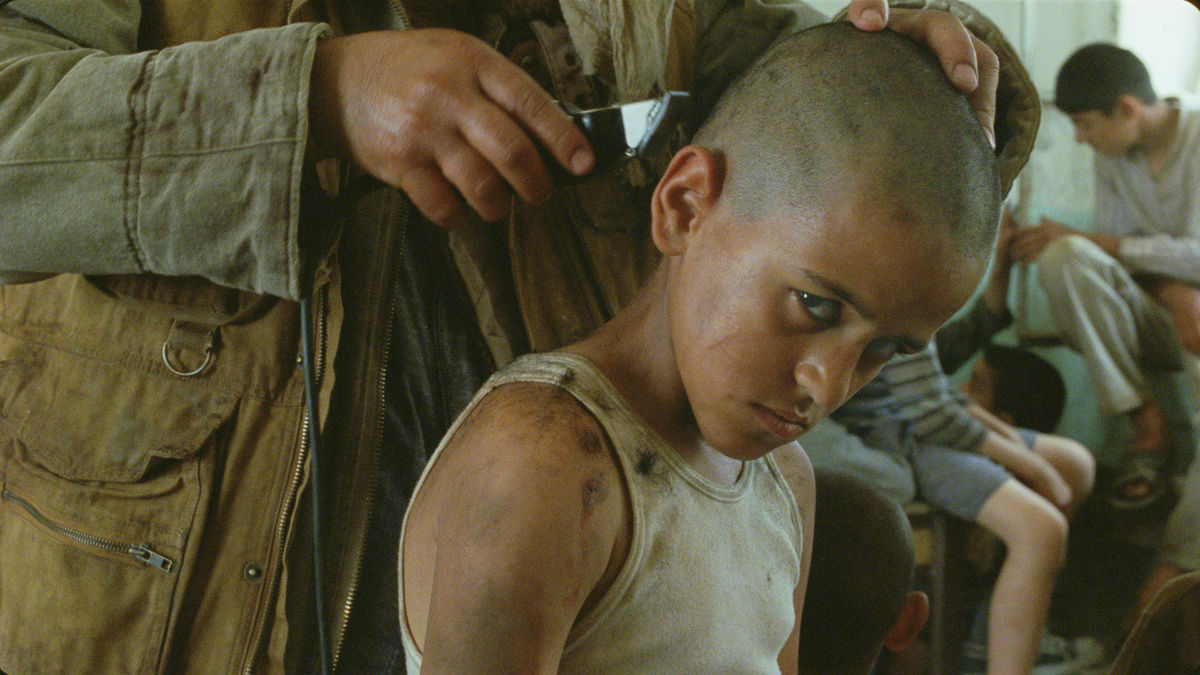
The film begins with a short sequence of images of young boys, surrounded by men with guns, having their heads shaved. The camera focuses on the face of young boy for reasons we cannot know. One cannot fail to suspect he is in danger.
Then, the viewer joins Simon (Maxim Gaudette) and Jeanne (Mélissa Désormeaux-Poulin) as they join their mother’s lawyer for the reading of her will. They know that their mother was not at peace, but they do not know why. Simon doesn’t want to know. Jeanne needs to know, although she doesn’t know why.
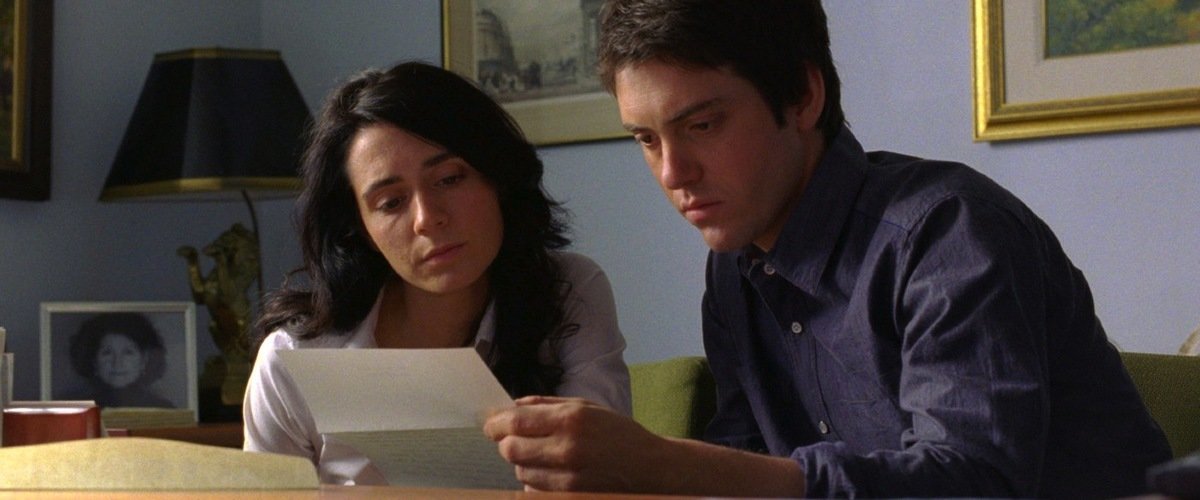
Their mother expired after an event at a public pool where she was mysteriously struck silent. No one knows why. Not even Jeanne, who had been with her mother when it had happened. Their mother, Nawal (Lubna Azabal), had only broken her silence briefly while in the hospital to ask her lawyer (and employer) to help her write two letters, to the children’s father and to their brother, neither of whom Simon and Jeanne knew were alive.
Simon intuits something and makes it clear he wants nothing to do with these letters or their dying mother’s request that they deliver them. Jeanne accedes.
Thus, at this point, the film follows Jeanne as she travels back to a middle eastern country (according to Wikipedia, Lebanon) to find her brother.
Montage and character development
Rarely does a film allow its viewers to experience the transformation of a person’s character. Part of the reason for this is because of the enormity of the task: psychological transformations occur over long periods of time and/or through traumatic circumstances to which a film viewer—only able to offer a few hours of her time and attention (if that)—would be unable to genuinely comprehend in that time.
Hollywood’s ruthless abuse of montage
American film has developed a horrid historical tradition of abusing the montage to present false character developments. What is right about the montage is number, sequence. Humans only change through repeated events, just as Aristotle’s virtuous person becomes so only through patient and consistent habituation. The montage fails in its inability to present the specificity for the sake of repetition. In other words, montages just don’t have enough time.
[Aside: the use of pop music in Hollywood montage is an aesthetic crime against humanity. Not unlike 1990s fashion. I’m totally serious about that.]
Each moment must be discrete and meaningful in order for its repetition to have its transformative power (in case you’re wondering how different things can repeat, please consult Deleuze’s Difference and Repetition).
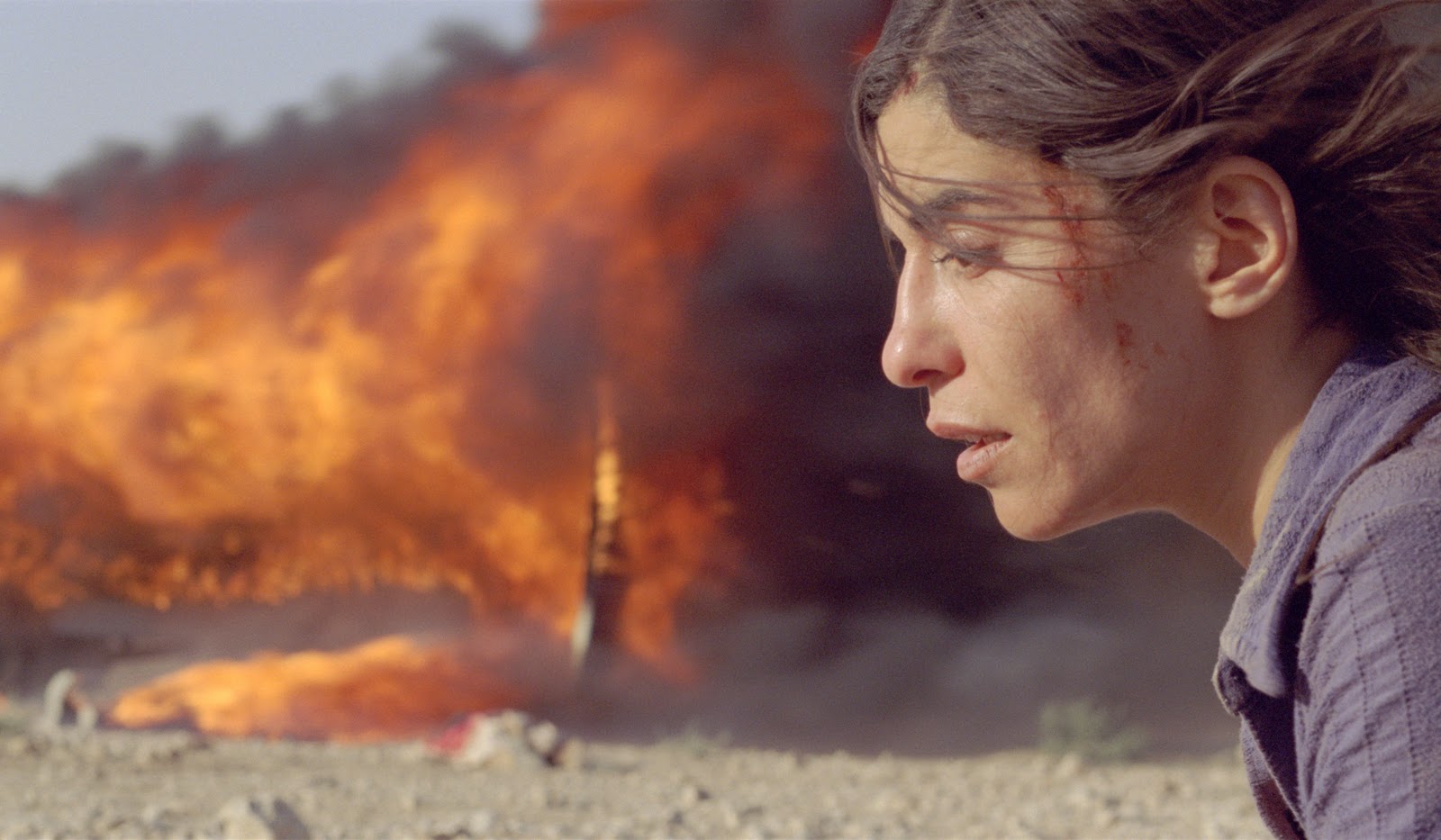
How Nawal is slowly, painfully, transformed
Incendies slowly walks its viewers through each of those events. Each is significant. Each transforms. Nawal becomes a different person before our eyes. She first appears as a young woman with hope and a child, but both are stripped away from her at every step. It’s not only the killing her Wahab, the baby’s father, or giving birth, or giving up the child. There is also her work at the university newspaper and the military coup absorbing the city. Her journey to find her lost son. Her near execution along with other ill-fated Muslims. Her failure to find her son. Her actions to kill a politician for the man who knows where her son is. Her imprisonment. Her rape. Her pregnancy and giving birth. Her freedom. Her denial of these two new children (from the rape). Her persuasion to take them to America.
All of that and then this incident at the swimming pool. An event of the most dramatic reversal of fortune.
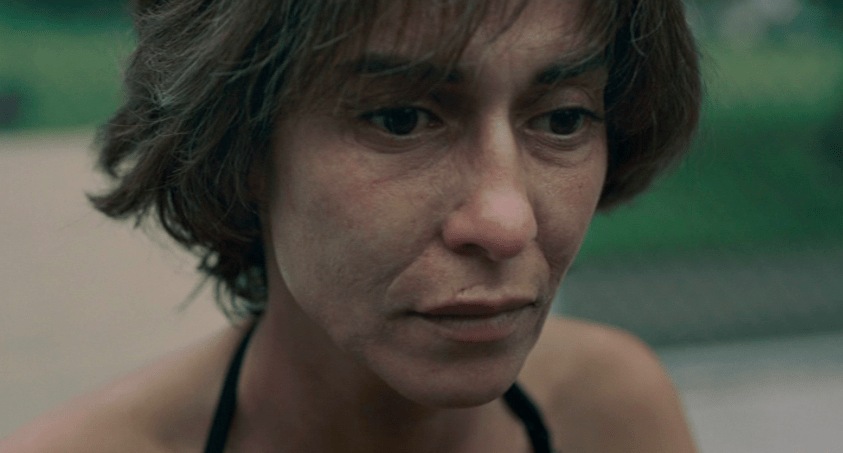
La femme qui chant. Prisoner 72. Whore 72.
Strangely, though the viewer spends more time in the presence of Jeanne, the sister, as all of these details unfold, her character does not undergo any significant change. She is uncertain, confused, bereaved, curious, and wanting. But by the end of the film it is Simon, the brother, whose attitude has changed the most. The viewer doesn’t know enough about either of these characters to appreciate true transformation. Yet it is clear that Simon finally sees his mother differently, both forgiving her for the failures that unavoidably effect a mother subjected to such trauma and even recognizing his own failure.
Incendies and Radiohead
Although the film does not engage in the ludic folly of the Hollywood montage sequence, it does draw on music—and pop music at that, Radiohead—to effect mood. I bristle at the use of pop music in general because pop music (and maybe it’s unfair to so categorize Radiohead) already bears so many identifications, associations, meanings, that it becomes impossible to hear it apart from those—and so slip into the background.
Radiohead probably occupies a marginal location in the concern, given that much of the music is more instrumental than it is lyrical. So it’s nothing like Martin Scorsese using the Rolling Stones’ “Can’t You Hear Me Knocking” in Casino (1995) or Jonathan Glazer using The Stranglers’ “Peaches” at the beginning of Sexy Beast (2000)—both of which are magisterial, admittedly.
So, although I think Radiohead works in Incendies, it is a note perhaps out of tune [sorry, I couldn’t resist].
Me and Denis (Villeneuve)
Although I have yet to see Dune (2021), let their be no confusion about my profound esteem for the oeuvre of Denis Villeneuve. I would like to just make sure that you know that I knew about Villeneuve long before Arrival (2016) and Blade Runner 2049 (2017).
In fact, I’d hesitated to see the latter out of fear that it would be just another example of the hubris that Hollywood structurally requires of its directors. But Blade Runner 2049 was great and a genuinely meaningful sequel—in as much as it can be called as such—to the original Blade Runner (1982).
The first film I saw by Villeneuve was Enemy (2014), and although I think it is lacking in relation to many of his other films (I haven’t seen the early films that he’s disavowed, nor Polytechnique (2009) [because active shooter films are not really enjoyable anymore—and yes, I know what I just said … I’m not proud of it]).
Enemy pales beside Prisoners (2013), which Villeneuve made after Incendies, and it is not in the orbit of Incendies, but I remember the final scene and being astounded by its audacity.
Can a single scene make a film great?
What is Denis Villeneuve’s best film?
Okay, so here’s my ranking of Villeneuve films (that I’ve seen) from best to good. None of them are bad and will be better than anything made my most of Hollywood even on a Tuesday.
- Incendies (2010)
- Prisoners (2013)
- Blade Runner 2049 (2017) [actually, probably tied for second place]
- Enemy (2014)
- Arrival (2016) [just because this is five doesn’t mean it’s bad—it’s much, much better than Sicario, which itself is not bad, it’s just not as good as any of the others].
- Sicario (2015)

